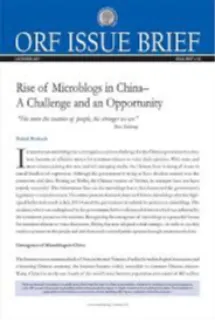The Internet was commercialised in China in the mid-Nineties. Fuelled by technological innovation and a booming Chinese economy, the Internet became widely accessible to common Chinese citizens. Today, China has nearly one-fourth of the world’s total Internet population with a total of 485 million users in July 2011. Ever since the Internet was commercialised, the government has maintained strict control. For censoring content on the Internet, it launched a project called the “Golden Shield” (commonly known as the Great Firewall) which incorporates a sophisticated system of censors that also comprises human volunteers who constantly monitor and delete information on the microblogs.
Matters relating to politics top the government’s censor list. For instance, content relating to Liu Xiabao, the Nobel Peace Prize winner, was inaccessible to Internet users in China. Due to its strict Internet censorship policies, the Chinese government has clashed with companies like Google which did not accept the censorship tactics of Beijing. Google also alleged that the Chinese government had hacked into email accounts maintained by the company.
In recent years microblogs have emerged as a serious challenge for the Chinese government as they have become an effective means for common citizens to voice their opinions. With more and more citizens joining this new and still emerging media, the Chinese State is doing all it can to curtail freedom of expression.
Although the government is trying to have absolute control over the comments and ideas floating on Weibo, the Chinese version of Twitter, its attempts have not been entirely successful. The information flow on the microblogs has in fact threatened the government’s legitimacy to a certain extent. The online protests that took place on Chinese microblogs after the highspeed bullet train crash in July 2011 forced the government to rethink its policies on microblogs. The incident, which was underplayed by the government, led to widespread criticism which was reflected by the comments posted on the websites.
Recognising the emergence of microblogs as a powerful forum for common citizens to voice discontent, Beijing has now adopted a dual strategy it seeks to use this media to connect to the people and simultaneously control public opinion through stricter restrictions.
The views expressed above belong to the author(s). ORF research and analyses now available on Telegram! Click here to access our curated content — blogs, longforms and interviews.

 PDF Download
PDF Download



 PREV
PREV


